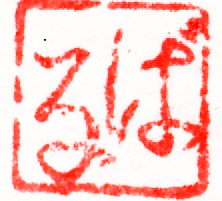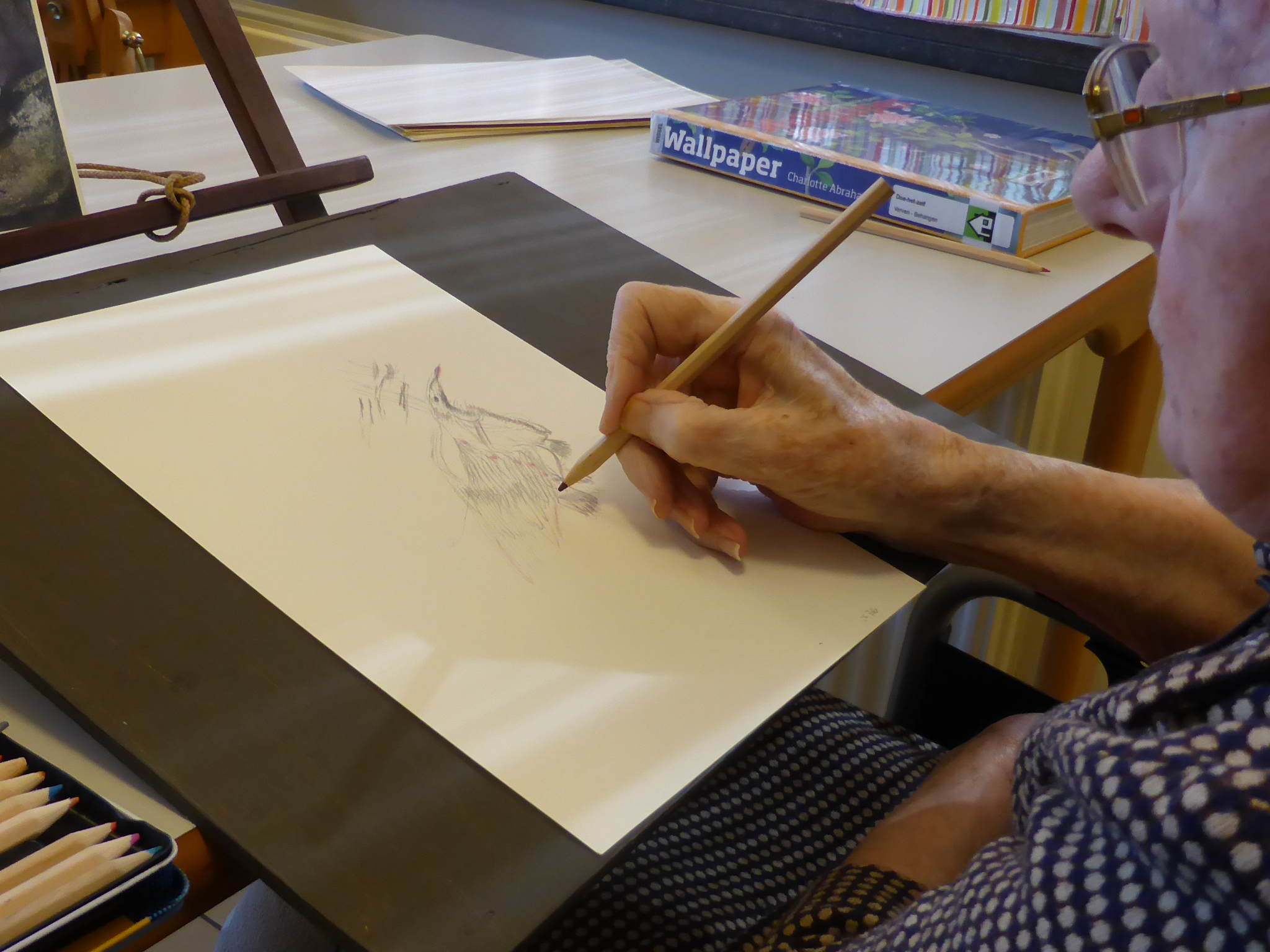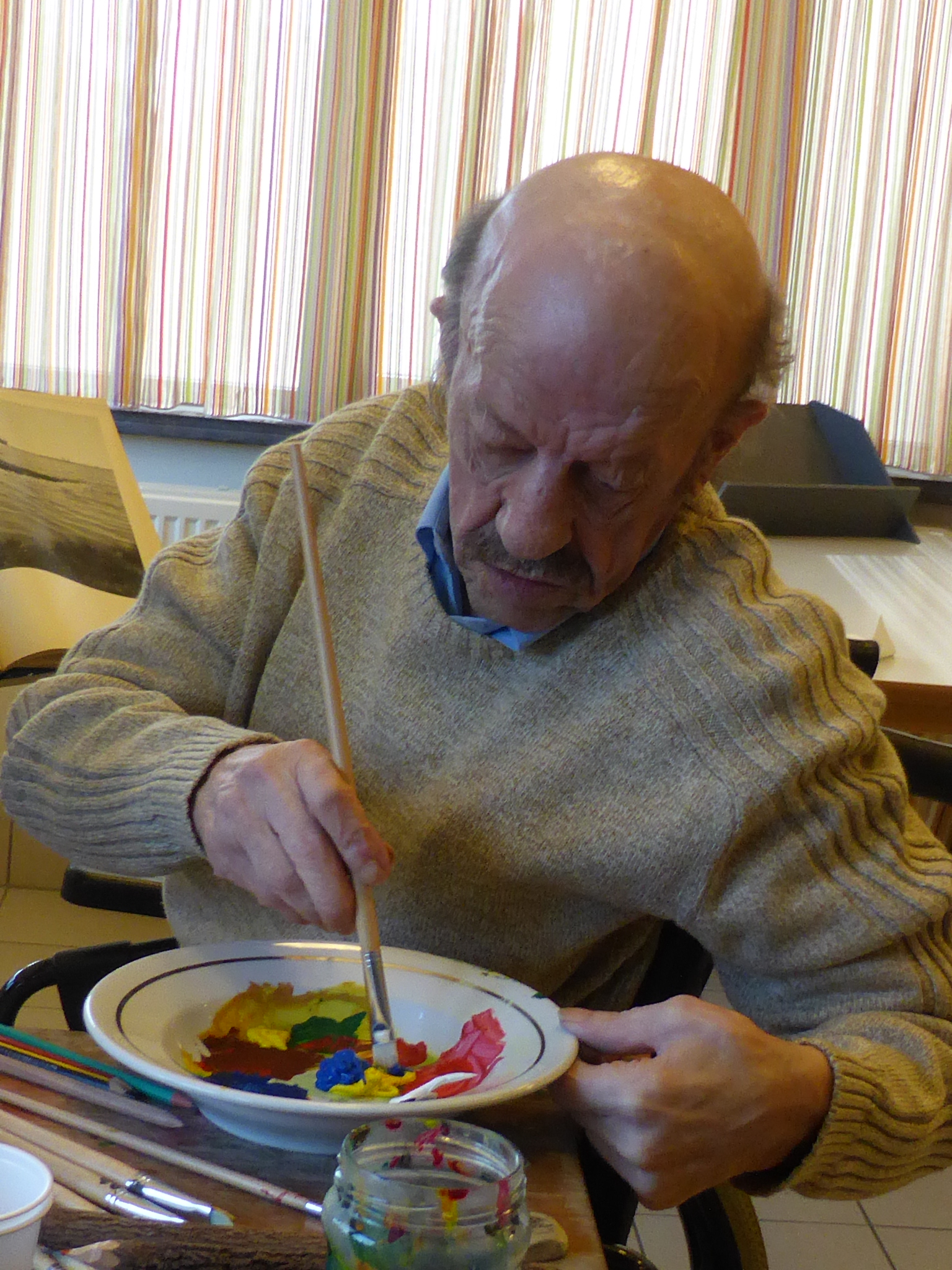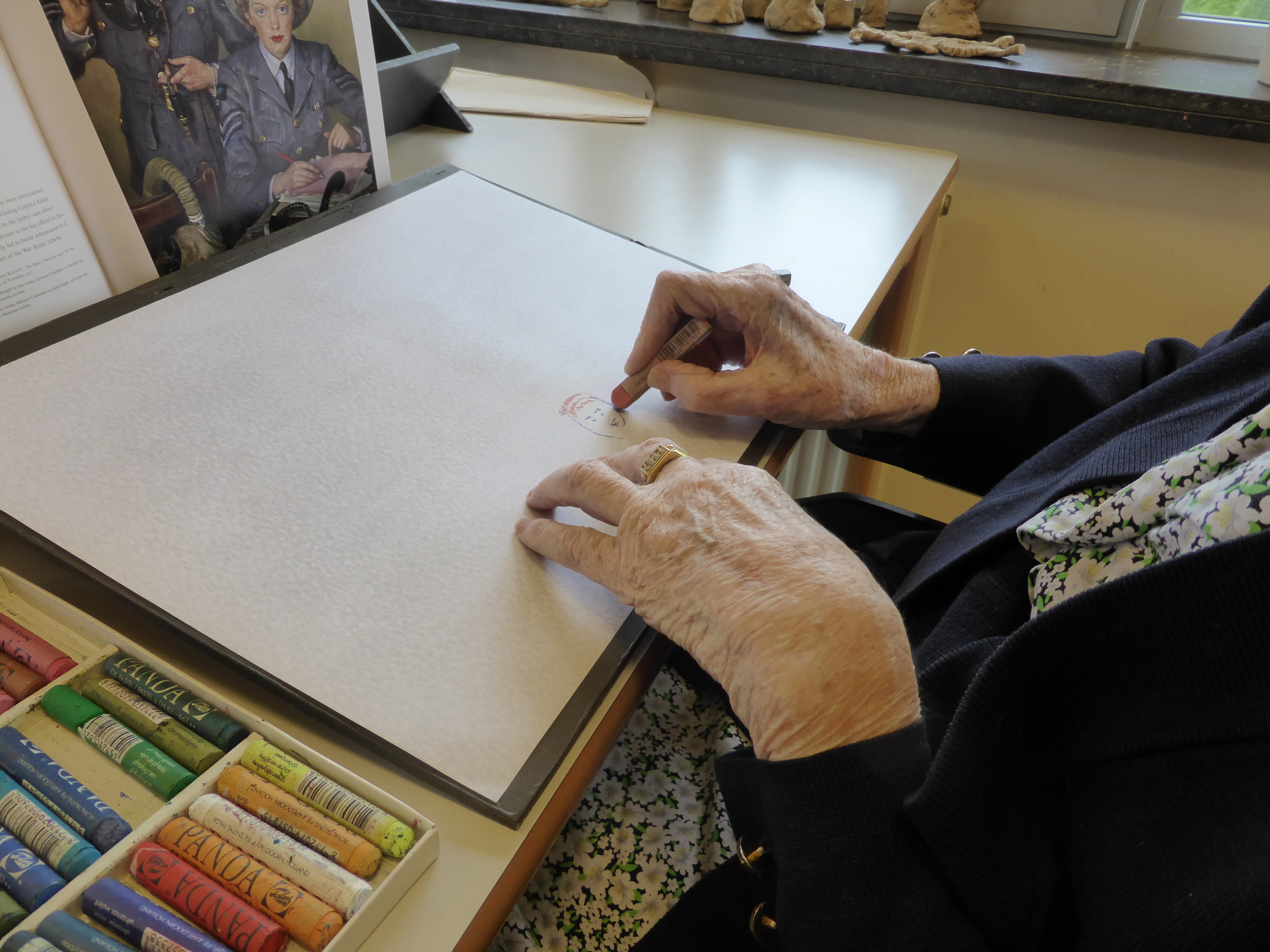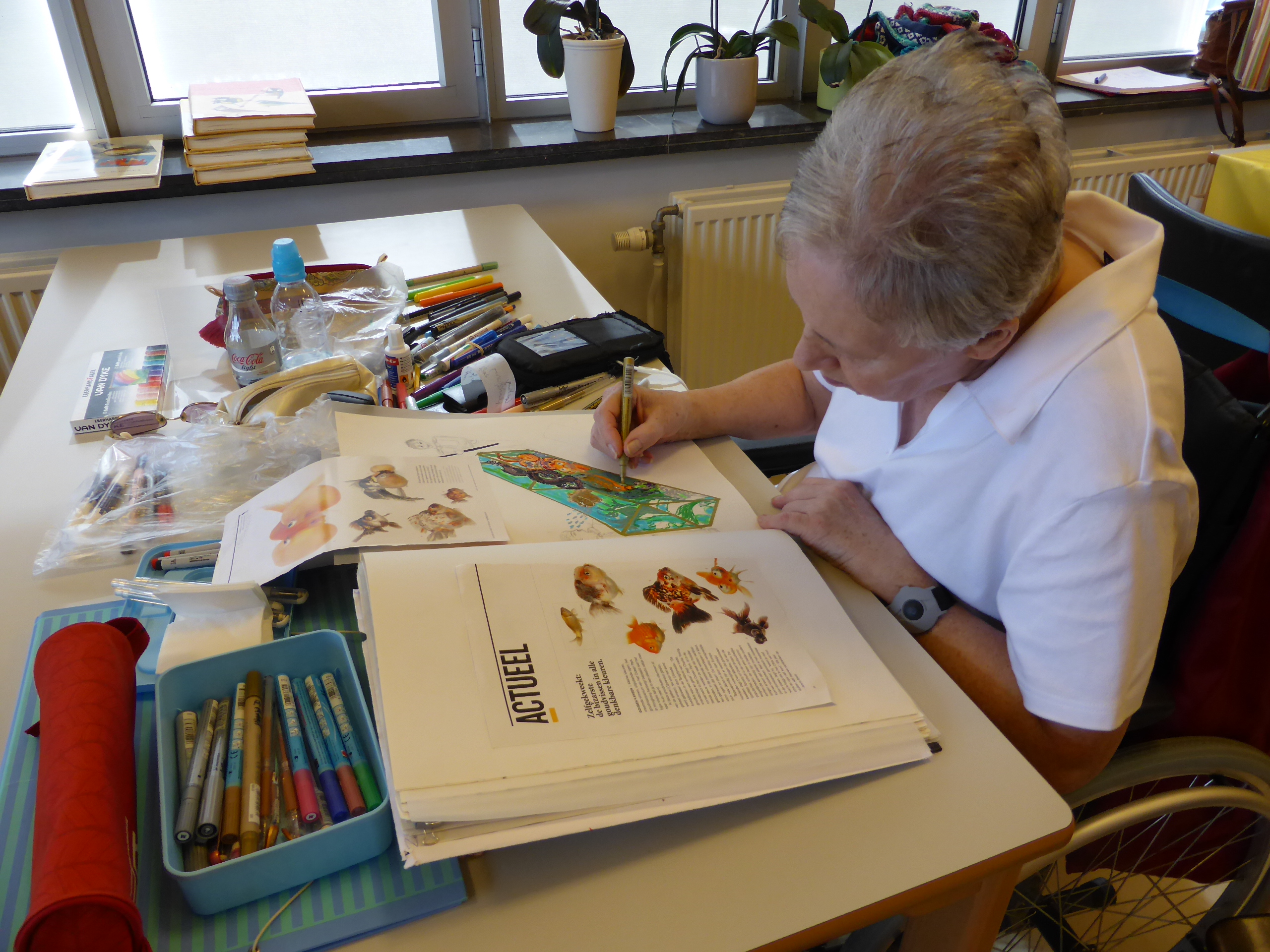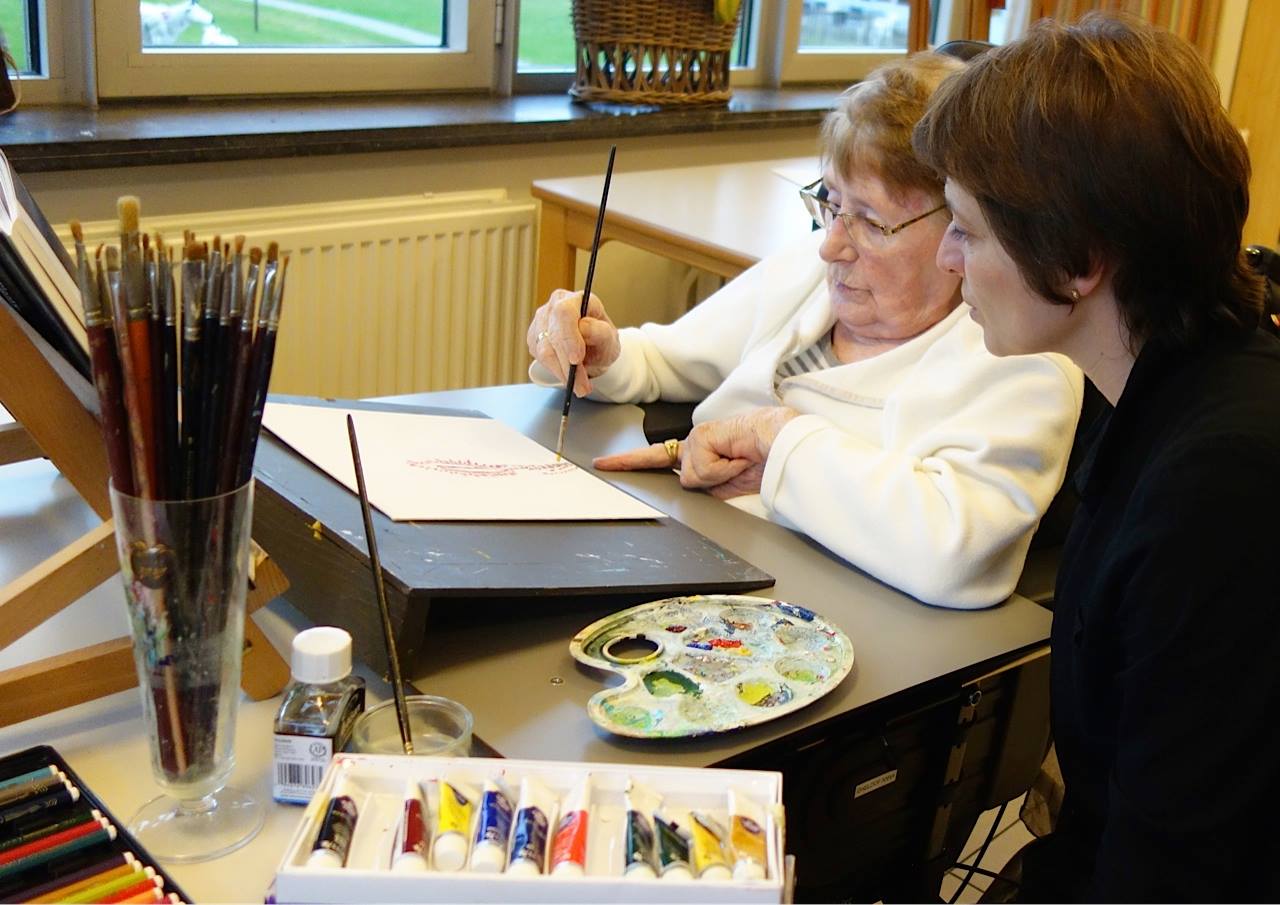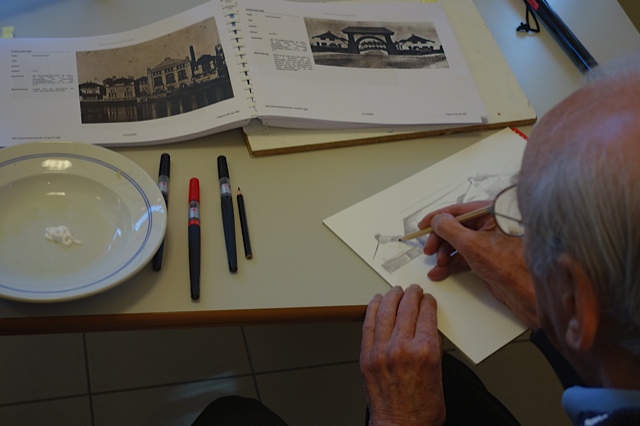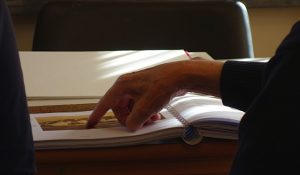It all started with that absent look in her eyes and little notes scribbled all over her house
“My daughter’s name is…”,
“I have one daughter”,
“my two granddaughters are Barbara and Kim”
There was also the music she heard coming from the neighbours, childhood songs… And there were the strangers in the couch to which she proposed dinner (but they wouldn’t eat) and also men in her bed. Luckily it didn’t frighten her… It frightened us, though…
Years after she died I met an artist, Bert Vervaet, who created an art workshop in a care home for people with dementia.
Drawing and painting are universal languages, and kind of a meditation! The people who come to our workshop cannot talk any more but when we make art together, we are in strong connection and communication with each other and we do have a lot of fun!
- When I go wandering around. Let me go. Don’t force me to sit down. Let me stand and walk around
- When I ask for my mum, don’t tell me she’s dead. Hold my hand, and ask me for her name
- When I’m angry, I don’t want medication. I want you to listen to my voice and take your time.
- When I don’t want to eat any more, it’s not because I’m not hungry. It’s because I forgot how to. Show me how you do it…
- When I don’t want you to help me washing myself and getting dressed, it’s not that I want to be dirty. It’s because I forgot you offered me your help.
- Just keep repeating what you’re going to do, keep warning me what is coming next, and maybe you even get a kiss 🙂
- If you have empathy, and look with patience what I want to say, maybe you’ll even find out how I feel
- I have an illness, you know, called Alzheimer. Now I still remember, but tomorrow I’ll have forgotten it.
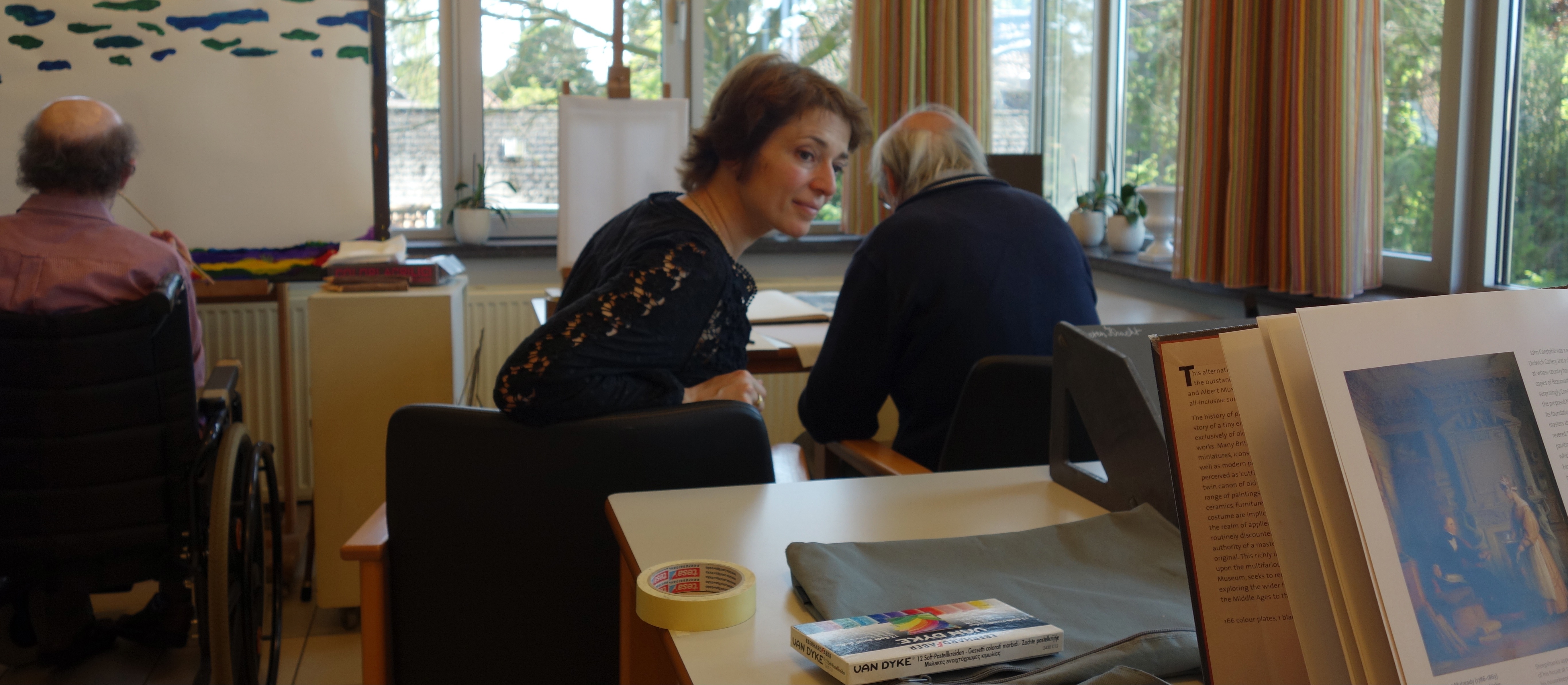
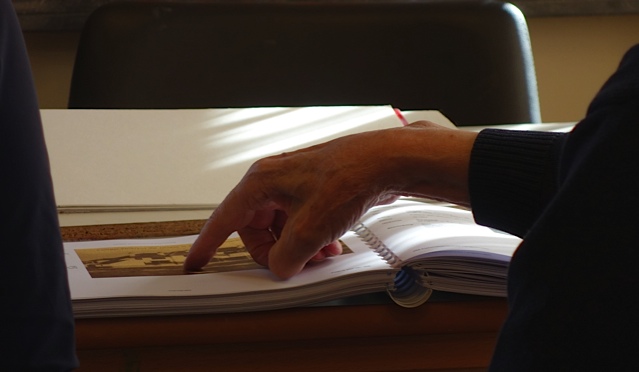
Drawing and painting are universal languages, and kind of a meditation! In my “art for dementia”-project I volunteer in an art workshop for people with dementia. They cannot talk any more but when we make art together, we are in strong connection and communication with each other and we do have a lot of fun!
This is me in our workshop 🙂
Our mission : To give people suffering from dementia a possibility for communication, a moment of resourcing, as well as human connection and dignity.
If you want advice to start a workshop like this in a place near your place, or privately at home with your family & friends, I’ll be happy to help you.

